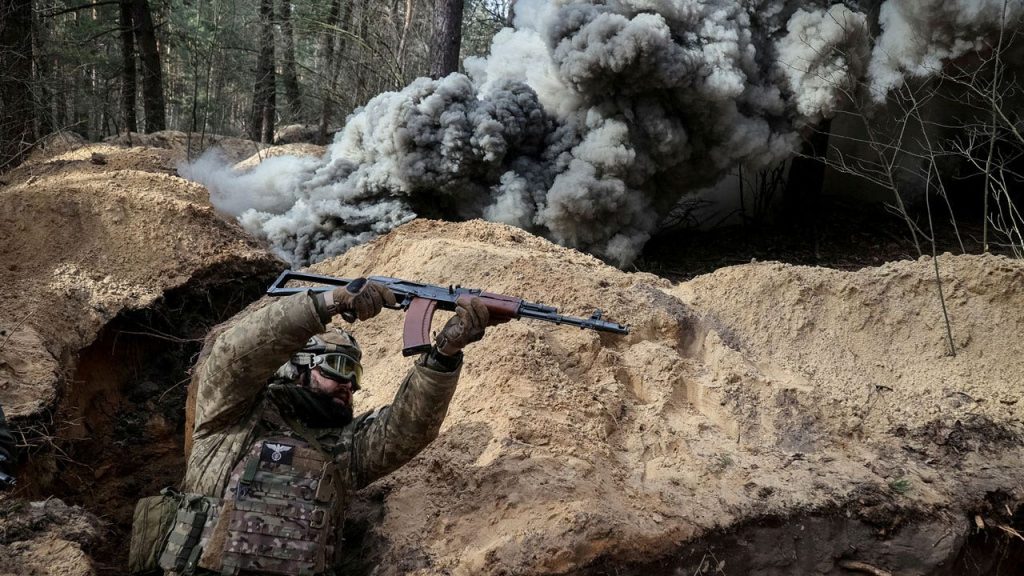The use of riot control agents such as tear gas in the Ukraine conflict is increasing, with the Ukrainian military reporting over 900 uses of such agents by Russian forces in the past six months. These agents, banned by the Chemical Weapons Convention, have caused around 500 Ukrainian troops to require medical help due to exposure. The use of tear gas grenades dropped by Russian drones has led to symptoms such as tearing eyes, difficulty breathing, and demoralization among soldiers, making it challenging for them to carry out their duties in the trenches.
Colonel Serhii Pakhomov, head of the military’s atomic, biological, and chemical defense forces, stated that Russia has utilized various riot control agents in the attacks, including CS, CN, and chloropicrin, which was used as poison gas in World War I. However, Russia has denied these allegations, with its embassy in The Netherlands claiming that the data on the use of CN gas grenades is unconfirmed. Moscow has also accused Ukrainian forces of using chemical weapons, but neither side’s claims have been independently verified.
To prepare for future attacks involving riot control agents, the Ukrainian military is distributing gas masks to soldiers and conducting drills to help them defend against such attacks. These measures aim to protect troops from the effects of toxic substances used in the conflict. In areas occupied by Russian forces, medical professionals have observed an increase in the number of soldiers affected by gas attacks, with symptoms ranging from irritation to dizziness and difficulty breathing.
The use of riot control agents as weapons has raised concerns within the Organisation for the Prohibition of Chemical Weapons (OPCW), with discussions on the topic taking place during recent meetings. Despite this, the OPCW has not received any requests for investigations or technical assistance related to the alleged use of banned chemicals in the conflict. Documenting cases of suspected chemical weapons use falls to specialized groups within the Ukrainian military, but the ongoing fighting and heavy artillery fire often hinder their ability to visit the affected areas and collect evidence.
As Russian forces continue to make advances in eastern Ukraine, the use of riot control agents poses a significant threat to Ukrainian troops, who must protect themselves against the effects of these banned substances. Gas attacks have the potential to demoralize soldiers and impair their ability to carry out their duties, making it crucial for the Ukrainian military to provide adequate protection and training to mitigate the impact of such attacks. The conflict in Ukraine highlights the challenges of enforcing international bans on chemical weapons and the implications of their use in modern warfare.













